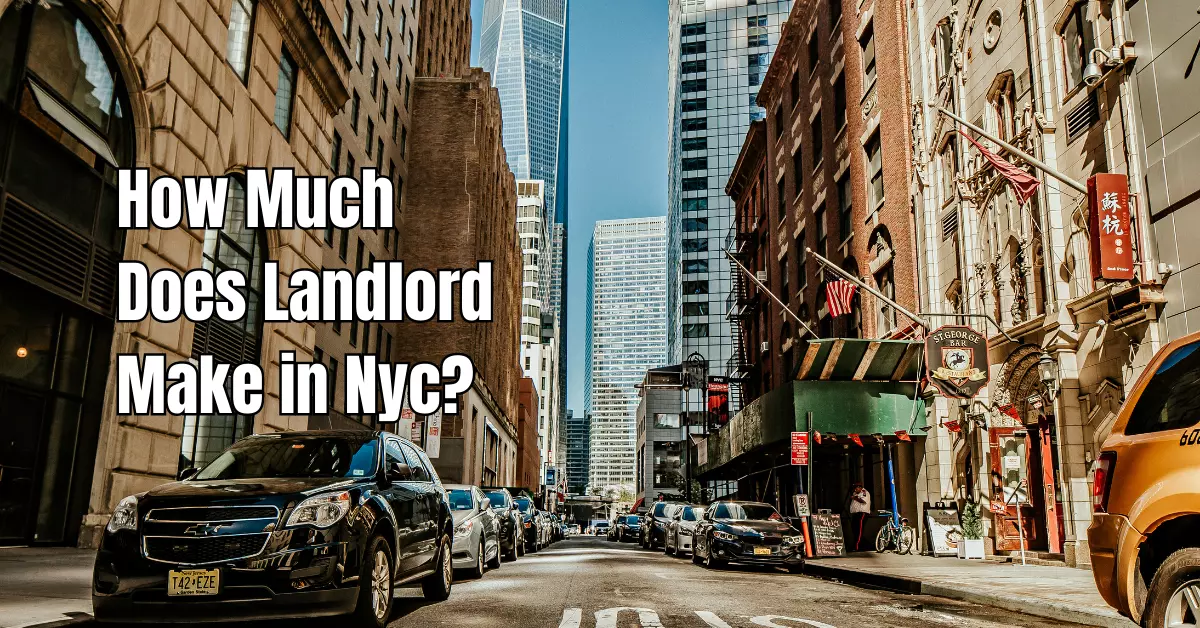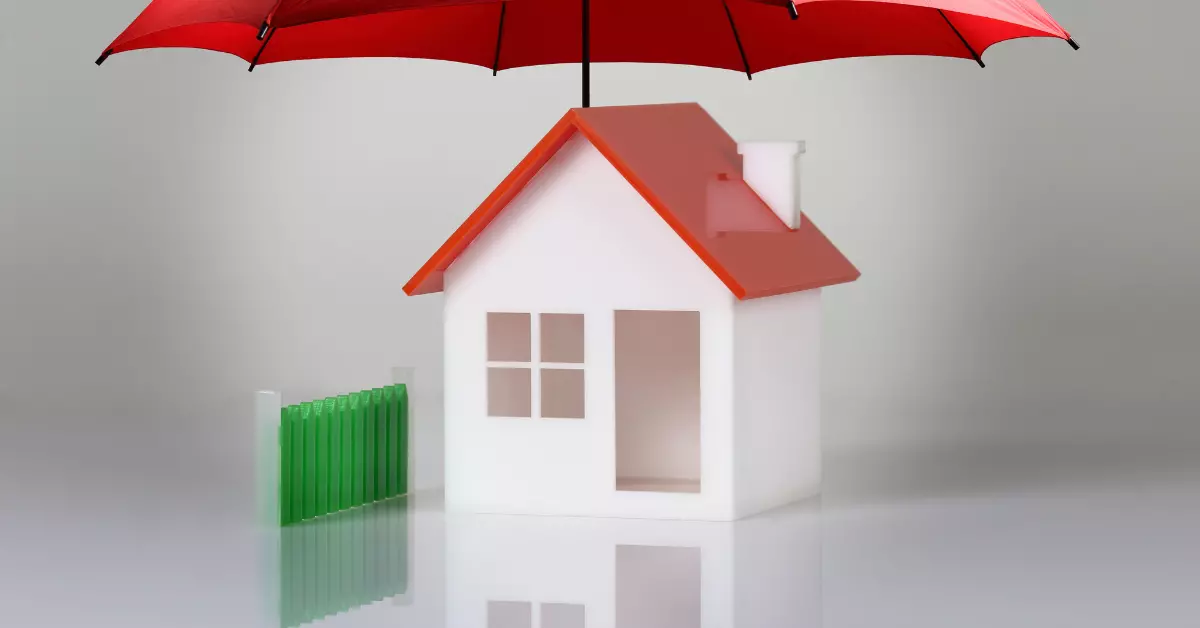Landlords in NYC can make anywhere from a few thousand dollars to millions of dollars, depending on the size and location of their properties, and management abilities.
how much does landlord make in nyc? Your earnings will also depend on many factors, such as the location, size, and condition of your property, as well as your management abilities.
This article aims to explore the factors that impact how much landlords can make in nyc and provides some tips to help them maximize their earnings.

An Introduction To Nyc Rental Market Trends
Overview Of Nyc Housing Market
New york city’s real estate market is a highly competitive and dynamic market for landlords.
According to recent data, the average rent in new york city for two-bedroom apartments is $3,411 as of 2021. However, the rental prices vary from one area to another, depending on the location, age of the property, and other factors.
For instance, highly desirable areas like Soho and Chelsea can command rental prices as high as $4,500 per month. In contrast, the rental prices in areas such as the Bronx and Queens are relatively more affordable, with rents for similar properties at around $2,200 per month.
Factors Affecting Rental Prices
Several factors affect rental prices in new york city. One of the significant factors is the location of the property. The most expensive area in new york city is Manhattan, followed by Brooklyn, queens, the Bronx, and staten island.
Other factors that landlords should consider when setting rental prices include the condition of the property, market competition, potential tenant demographics, and property amenities.
For instance, properties with luxury amenities like laundry, fitness centers, and concierge services can command higher rental prices than those that lack such features.
Analysis Of Past And Present Rental Market Trends
Knowing the historical and current trends in the rental market is crucial for landlords who want to maximize their profits in new york city.
Over the past ten years, the new york city rental market has seen significant changes, with rents soaring in some areas and decreasing in others.
For example, in 2015, certain downtown locations saw rental prices decrease by more than 10%. Increasing supply, tighter affordability, and changing tenant preferences are all factors that may affect price fluctuations.
Today, the pandemic has upended the rental market, especially for landlords inexpensive, city-center neighborhoods. The market’s unpredictability and uncertainty have impacted landlords’ ability to make rental income in these areas.
Accordingly, strategies like offering concessions such as lower rents for the first few months or upgrades that improve the property can create a competitive advantage that may lead to a quicker turnaround time for getting tenants.
Determining Landlords’ Income Potential
As a landlord, it’s essential to know how much income you can potentially generate from your properties, especially in a competitive market like NYC.
Understanding the key factors that influence this potential income is crucial. Let’s discuss factors like the type of property, the neighborhood, and other metrics that can help landlords determine their income potential.

Average Rental Yields For Different Types Of Properties
Rental yields describe the amount of rental income a property generates compared to its value. Different types of properties have varying rental yields in NYC. The following are the average rental yields for some of the most common property types:
- Single-family homes: 1.8%
- Multi-family buildings: 4.2%
- Condos: 3.4%
- Co-ops: 3.0%
Comparison Of Different Neighborhoods In Nyc
The rental income generated by a property can vary depending on its location. In NYC, there are many neighborhoods characteristically known for particular types of properties.
Such as luxury apartments in downtown Manhattan or brownstones in Brooklyn. Here are some examples of neighborhoods and their respective rental yields:
- Tribeca: 1.9%
- Upper west side: 3.9%
- Park slope: 3.3%
- Williamsburg: 4.5%
Key Metrics To Consider When Evaluating Rental Income
While rental yields and neighborhood comparisons provide landlords with a basic understanding of a property’s income potential, it’s time to delve deeper. It’s best to consider other key metrics:
- Occupancy rates and turnover rates.
- Maintenance and repair costs.
- Property taxes and insurance costs.
- The location’s economic growth potential.
These metrics should all be factored in when evaluating a rental property’s ability to generate income. By doing so, landlords can make informed decisions on which properties to invest in and avoid financial losses.
Rent income potential can vary significantly across NYC neighborhoods and property types. Landlords need to review rental yields, neighborhood comparisons, and other metrics to make informed decisions and maximize their rental incomes.
Maximizing Earnings For Nyc Landlords
Are you a landlord in new york city? Do you want to increase your rental income? If so, this section is for you.
Strategies For Boosting Rental Income
Airbnb
If you have an extra room or apartment, consider renting it on Airbnb. Not only can you earn extra income, but you can also benefit from higher rates during peak seasons.
Offer additional services
Depending on your property’s location, you can offer additional services such as pet care, house cleaning, or laundry. This makes your property stand out from competitors, potentially attracting more tenants.

Unfurnished vs. Furnished units
Offering furnished units can increase rent, but also requires extra upkeep and cost.
Increase rent annually
Account for inflation and market demand each year.
Amenities
Offer extra amenities such as exercise rooms, parking, or package acceptance for tenants’ convenience.
Factors To Consider When Setting Rental Prices
- Location: Desirable neighborhoods can justify higher rents.
- Size: Larger units often come with higher rents.
- Building condition: Newly renovated or well-maintained buildings warrant higher rents.
- Amenities: Buildings with amenities demand higher rents.
- Market demand: Pay attention to the market: if there is high demand and low supply, you can justify increasing rent.
Landlord Legal Requirements And Responsibilities In Nyc

Security deposit
Landlords may only retain a portion of a tenant’s security deposit to cover unpaid rent or damages. The remainder must be returned to the tenant upon vacating the premises.
Tenant rights
Tenants have a right to live in a habitable environment and are protected against discrimination.
Lease agreement
Lease agreements must clearly state the rental amount, due dates, and penalties for late payments.
Rent regulations
Nyc has strict rent stabilization and rent control laws.
Repairs and maintenance
Landlords must keep the property in livable and safe conditions and are responsible for all repairs or have the responsibility to immediately address tenant-reported issues.
Frequently Asked Questions Of How Much Do Landlords Make In Nyc?
How Much Can A Landlord Make From Renting A Property In Nyc?
The amount a landlord can make from renting a property in nyc depends on various factors such as location, property type, vacancy rates, and management costs. The average rental income for a studio apartment is around $2,500 to $3,000 per month, whereas a three-bedroom apartment can bring in around $7,500 or more per month.
What Are The Taxes That Landlords Have To Pay In Nyc?
New york city charges various taxes to landlords, including property tax, income tax, and sales tax. Property taxes are the largest contribution to a landlord’s tax expenses, and it’s important to make sure they are paid on time, as late payments can result in penalties and interest charges.
How Do Landlords In Nyc Find Reliable Tenants?
Some effective ways that landlords in nyc can find reliable tenants include listing the property on various rental platforms, screening applicants, and conducting background checks. It is also important to provide a welcoming and clean apartment and respond to maintenance requests quickly to improve tenant satisfaction.
What Are The Legal Obligations Of Landlords In Nyc?
Landlords in nyc have legal obligations to provide a safe and habitable living space for their tenants. This includes ensuring that the apartment meets building codes, providing habitable conditions, performing repairs, and fulfilling lease terms. Landlords must also follow local and state laws regarding rent increases, eviction procedures, and discrimination protection.
Conclusion
Navigating New York’s rental market isn’t easy, but the rewards for landlords can be significant. By understanding the costs and potential profits, you can make an informed decision about investing.
Remember, what you earn as a landlord in NYC hinges on factors like location, property type, and market conditions.
Reference
https://www.ziprecruiter.com/Salaries/Landlord-Salary-in-New-York-City,NY
